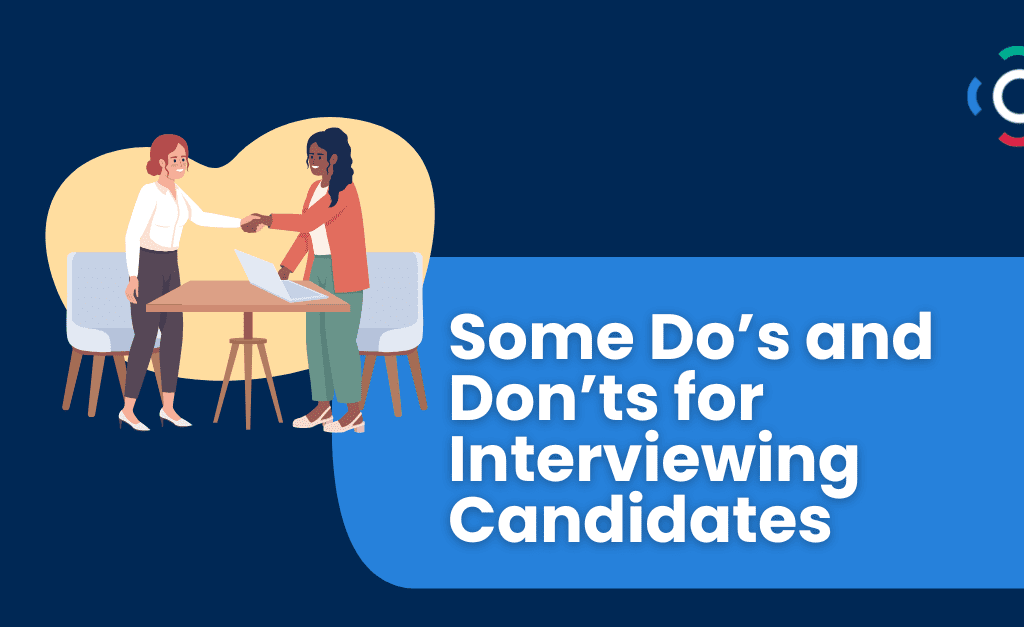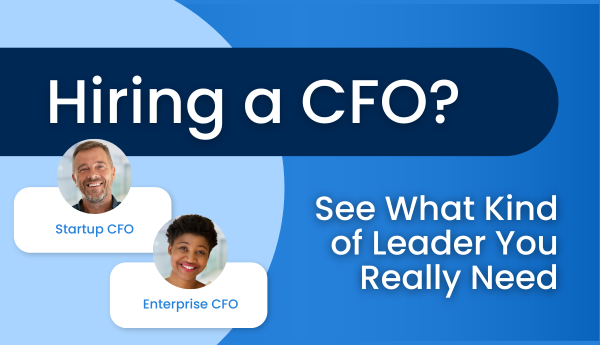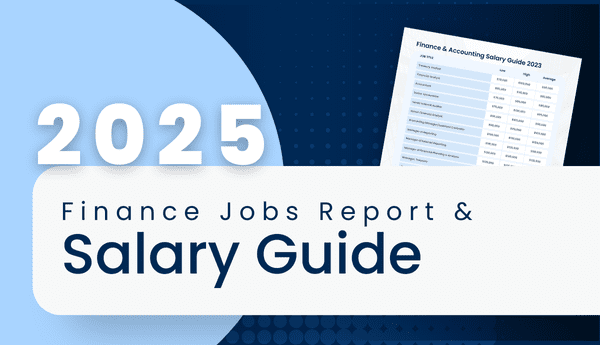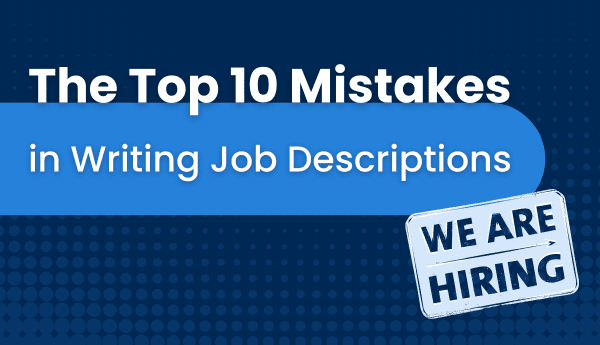Job interviews can be stressful and challenging – as much for the people asking the questions as for the candidates answering them. But they don’t have to be. Here are some tips for interviewing candidates and making better use of time.
Recently, I was chatting with a friend about our very first job interviews. He still remembered vividly how nervous he’d been that day; it was, he joked, one of the most harrowing experiences of his professional career. “The only thing that’s even come close since,” he wryly observed, “was the first time I had to interview someone else for a position.”
But that’s the dirty little secret about recruiting: while interviews can be difficult and challenging for the people being interviewed, they can be almost equally trying for the folks on the other side of the table.
All of us at Clarity Recruitment spend a considerable amount of time, in our capacity as finance recruiters, preparing our candidates for accounting job interviews – going over what they ought to wear, what kinds of questions they can expect to hear, who from the company will be leading the discussion, and so on. For the most part, I think everyone knows how important it is these days for candidates to enter the interview room ready to “perform.”
But the same thing applies to employers and hiring managers. Just as a candidate needs to have rehearsed their answers, researched the company or industry, and so on, before walking into an interview, HR managers and recruiters need to have done their homework beforehand, if they want to get the most out of the interviewing process. A smart, well-prepared interview can provide invaluable insight into a candidate’s personality and character – things that can’t necessarily be read off of a resume, but can only be determined face-to-face, through some careful poking and prodding. Poorly conducted interviews, on the other hand, waste everyone’s time, and lead to bad hires. Here are some tips for interviewing candidates, whether you’re new to the process or whether you’re an experienced veteran.
Do know what you’re looking for
HR managers have the unenviable task of recruiting talent for many divisions and functions. And as I’ve discussed on this blog before, it’s not always easy to keep track of the different requirements for all of the positions you’re hiring for.
That said, it’s important to know as much as possible about the job that candidates will be interviewing for, so that you can properly assess their suitability. Identify the precise skills, knowledge, personality, and other characteristics that would make someone a good candidate. What is most critical – experience or raw talent? Leadership and initiative or capacity for teamwork? If you haven’t already (and if it’s possible), speak to the incumbent or their supervisors, in order to see what traits they believe would ensure a candidate’s success in the role. Even if they are not directly involved in the selection process, their insights may prove useful.
Also, if you need to evaluate candidates’ technical skills – for example, their level of expertise with certain kinds of accounting software – you will need to prepare questions in advance that test those skills.
Do make sure all the interviewers are on the same page
If others are going to be conducting interviews with you, discuss beforehand the questions you’ll each be posing to the candidates. Ensure that all of the interviewers are reading from the same songsheet – that you all share a common understanding of what the position requires, and what you’re looking for in an ideal candidate.
Agree upon a basic script for the interview – how it’s going to begin, when you’ll start asking questions, and how you will wrap up the interview. Determine, for example, who among you will speak first and what questions they will ask, and then who will speak next, what questions that person will ask, and so on. You don’t want members of the team interviewing at cross-purposes, asking completely different or contradictory kinds of questions, or speaking out of turn and talking over each other.
A smart, well-prepared interview can provide invaluable insight into a candidate’s personality and character – things that can’t necessarily be read off of a resume, but can only be determined face-to-face, through some careful poking and prodding.
Do your homework on each candidate’s basic info
Before the interview, make sure you’ve gone over the candidate’s cover letter, resume, and any other relevant materials submitted with their application, so that you’re familiar with the basic details of their personal history, education, work experience, and qualifications. Naturally, if there’s anything unclear on the candidate’s resume or cover letter, you shouldn’t hesitate to have them clarify that during the interview. But you want to minimize the amount of time that you have to spend rehearsing their biographies and other information that you could just have easily gotten from their application.
Don’t do all the talking
A common mistake many novice interviewers make is to dominate the conversation, so that the candidate has to struggle in order to get a word in edgewise. Now certainly, there should be some opportunity for the candidate to ask you about the job, the company, and so on; set aside at least one part of the interview for their questions.
But remember that the whole point of the interview process is for you to learn as much about the candidate as you possibly can. And that can only happen by having them carry the discussion. Treat the interview as if it were an audition; you don’t see the judges on American Idol doing all of the singing for the show’s contestants.
Do try to establish rapport
Offer candidates water or a beverage when they first come into your office. Before the interview officially gets underway, tell them how you’re going to proceed, so that they know what to expect. You want to treat candidates with due respect, not just because it’s the decent or humane thing to do (though it is), but frankly, because it’s advantageous to you as the interviewer. People generally perform better in interviews when they’re relaxed and comfortable, and you want to see candidates at their best. Also, it’s easier to draw information out of someone and catch a glimpse of their personality and character, if you can establish some kind of rapport with them.
And remember: your interviewees will be evaluating you and your company as much as you’ll be evaluating them. Avoid doing anything that could reflect poorly on yourself or the company, like keeping candidates waiting too long or stepping out repeatedly during the interview to take calls. The interview is an important way of selling highly sought-after talent on the idea of joining your organization, so you want to put your best foot forward on both of your behalves.
And remember: your interviewees will be evaluating you and your company as much as you’ll be evaluating them.
Don’t be afraid to ask tough questions
It’s natural to empathize with candidates when you’re interviewing then. After all, we’ve all been in the hot seat, at one time or another; we know how awkward and nerve-wracking interviews can be for the interviewee. As I said above, you should try to put candidates as much at ease as possible.
Still, you shouldn’t let your sympathy for the candidate distract you from the goal of the interview, which is to find out as much as you can about the candidate that could inform your hiring decisions. And sometimes, that can require asking a few questions that force candidates to think on their feet. Again, you don’t need to make them sweat or squirm (while some recruiters swear by high-pressure techniques, most hiring managers and HR professionals today find these counterproductive). But depending on the position you’re hiring for, it may be instructive to see how candidates respond to questions of a more challenging or abstract nature – for example, what kinds of solutions they come up with for difficult hypothetical scenarios.
Do ask behavioural questions
By far and away, behavioural interviewing is the technique of choice among recruiters today. It’s based on the notion that past performance is a pretty good predictor of future performance. Behavioural questions thus require candidates to cite specific examples from their previous work experience or employment that demonstrate their skills and value.
For example, instead of a question like “how would you do if you got into a disagreement with a coworker?” you might want to ask a question like “how have you resolved conflicts with coworkers in the past?” This type of questioning makes it harder for candidates to fake an answer since it asks them to provide specifics, which can be subsequently double-checked with references.
Do take notes
This sounds obvious, but you’d be surprised how often people think they can remember candidates’ responses during their interviews without committing them to paper. Even if you have an elephant’s powers of recall, you should still jot down some notes for each candidate, so that you can refresh your memory later.
Treat the interview as if it were an audition; you don’t see the judges on American Idol doing all of the singing for the show’s contestants.
Don’t just go with your gut
You shouldn’t mistrust your instincts, but nor should you depend on them alone. The “gut” feeling that you form about a candidate isn’t always completely reliable. In fact, most recruiters tend to overrate candidates who make a good first impression (even if they don’t perform well during the rest of the interview), as well as candidates who are especially likeable or charismatic.
But the most qualified candidate for the job isn’t necessarily the person we like the most or whom we have the most in common with. Your shared love for the Denver Broncos or the Lord of the Rings trilogy might make for some entertaining conversation, but it shouldn’t be the basis for your judgment of a candidate’s professional qualifications and aptitude. Just because someone could be your BFF (Best Friend Forever) doesn’t make them the BPP (Best Person for the Position).
A lot can be riding on the interview. It may be your best, and last, opportunity to learn something about a candidate that could sway your decision one way or the other – that either convinces you that they’re absolutely the right candidate for the job, or conversely, that they’re a bad hire waiting to happen. Use your time wisely so that you only end up with the best talent for your organization.
Finally, I highly recommend that you download our free ebook, Help! I’m Interviewing Accountants to help you make better and smarter hires. For more great tips and advice, follow up on Linkedin.




